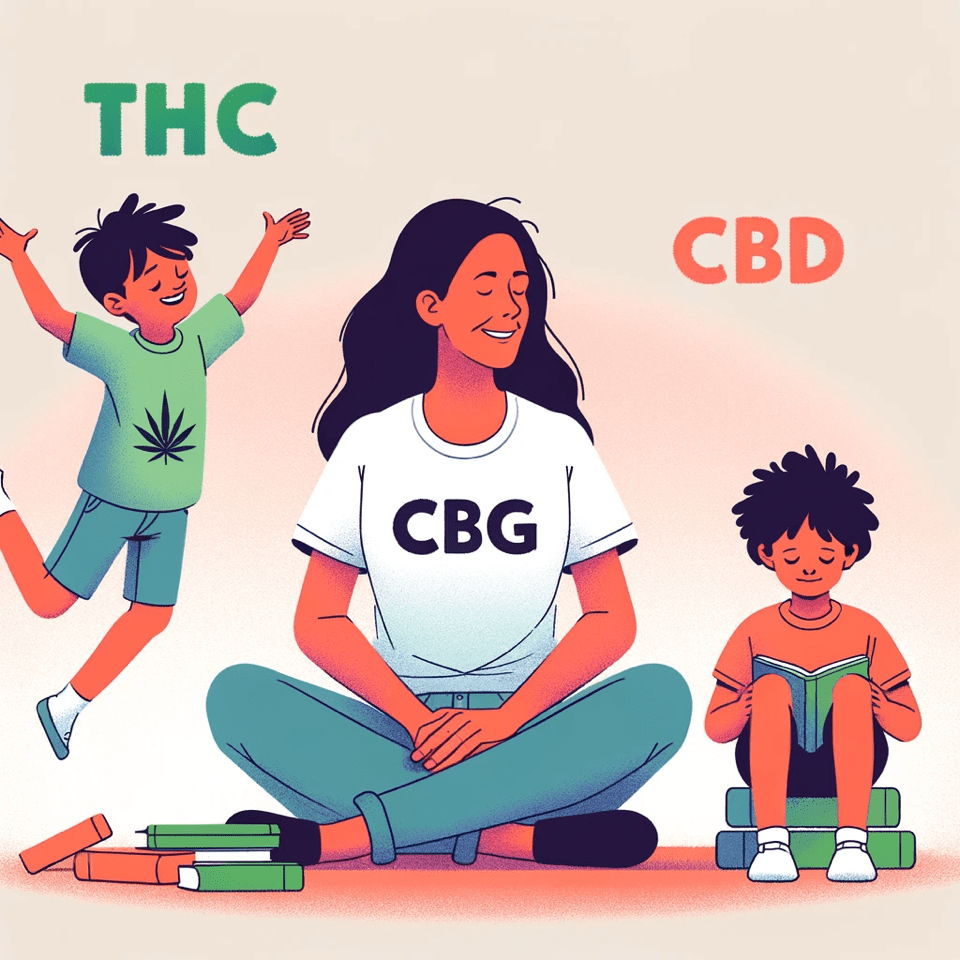Myth 3: Cannabis Has No Medicinal Value
Introduction
Despite the growing body of evidence suggesting otherwise, one of the most persistent myths about cannabis is that it has no medicinal value. This claim is widely refuted, both by a wealth of scientific research and by countless real-life examples of individuals who have benefited from medicinal cannabis.
The Endocannabinoid System
To argue that cannabis lacks medicinal value, one would have to overlook the existence of the Endocannabinoid System (ECS). The ECS, present in all vertebrates, like mammals, birds and reptiles, and even certain invertebrates, plays a crucial role in maintaining health and balance within an organism [1]. The ECS impacts many physiological processes, including mood, appetite, pain sensation, memory, and immune response, intertwining intricately with other fundamental physiological systems. Key components of the ECS are endocannabinoids, neurotransmitters naturally produced by our bodies. These endocannabinoids interact with cannabinoid receptors throughout the body, regulating various physiological and cognitive processes [1].
Phytocannabinoids
The phytocannabinoids in cannabis, including Cannabidiol (CBD) and Tetrahydrocannabinol (THC), mimic our body’s endocannabinoids, similar to how opioids mimic our endorphins.
Research
The therapeutic potential of cannabis and its compounds is well-documented and continues to be a growing area of research.
Research has shown cannabinoids like CBD and THC provide relief from various health issues.
A study in the British Journal of Clinical Pharmacology reported that cannabinoids could have numerous therapeutic indications, including anti-inflammatory, analgesic, anti-anxiety, and anti-psychotic effects [2]. Clinical trials have shown the efficacy of cannabis in treating chronic pain [3, 6], epilepsy [4], multiple sclerosis [7], sleep issues [8], anxiety [11], depression [5, 9], Autism [10], and ADHD [12]. Further studies are also investigating the therapeutic effects of other minor cannabinoids and terpenes present in the cannabis plant.
At CannaPlus+, we’ve witnessed firsthand how medicinal cannabis can transform a patient’s life, offering immense relief to those suffering from various medical conditions. The benefits ripple out, not only helping the patients themselves but also positively affecting those around them.
Conclusion
The myth that cannabis has no medicinal value has been thoroughly refuted by scientific research and clinical experiences. The robust body of evidence supports the therapeutic potential of cannabis, particularly for conditions unresponsive to conventional treatments. This potential underscores the importance of further research into cannabis and its many compounds.
References:
- Alger, B. E. (2013). Getting high on the endocannabinoid system. Cerebrum : the Dana forum on brain science, 2013, 14.
- Iffland, K., & Grotenhermen, F. (2017). An update on safety and side effects of cannabidiol: a review of clinical data and relevant animal studies. Cannabis and cannabinoid research, 2(1), 139–154.
- Mücke, M., Phillips, T., Radbruch, L., Petzke, F., & Häuser, W. (2018). Cannabis-based medicines for chronic neuropathic pain in adults. The Cochrane Database of Systematic Reviews, 3(3), CD012182.
- Devinsky, O., Cross, J. H., & Wright, S. (2017). Trial of Cannabidiol for Drug-Resistant Seizures in the Dravet Syndrome. New England Journal of Medicine, 377(7), 699-700.
- Bonaccorso, S., Ricciardi, A., Zangani, C., Chiappini, S., & Schifano, F. (2019). Cannabidiol (CBD) use in psychiatric disorders: A systematic review. Neurotoxicology, 74, 282-298.
- Whiting PF, Wolff RF, Deshpande S, et al. Cannabinoids for Medical Use: A Systematic Review and Meta-analysis. JAMA. 2015;313(24):2456–2473. doi:10.1001/jama.2015.6358
- Zajicek JP, Hobart JC, Slade A, Barnes D, Mattison PG; MUSEC Research Group. Multiple sclerosis and extract of cannabis: results of the MUSEC trial. J Neurol Neurosurg Psychiatry. 2012;83(11):1125-1132. doi: 10.1136/jnnp-2012-302468
- Shannon, S., Lewis, N., Lee, H., Hughes, S. Cannabidiol in Anxiety and Sleep: A Large Case Series. Perm J. 2019; 23: 18–041. doi: 10.7812/TPP/18-041.
- Sales, A.J., Fogaça, M.V., Sartim, A.G. et al. Cannabidiol Induces Rapid and Sustained Antidepressant-Like Effects Through Increased BDNF Signaling and Synaptogenesis in the Prefrontal Cortex. Mol Neurobiol 56, 1070–1081 (2019). https://doi.org/10.1007/s12035-018-1143-4
- Bar-Lev Schleider, L., Mechoulam, R., Saban, N. et al. Real life Experience of Medical Cannabis Treatment in Autism: Analysis of Safety and Efficacy. Sci Rep 9, 200 (2019). https://doi.org/10.1038/s41598-018-37570-y
- Crippa, J. A. S., Zuardi, A. W., Martín-Santos, R., Bhattacharyya, S., Atakan, Z., McGuire, P., & Fusar-Poli, P. (2009). Cannabis and anxiety: a critical review of the evidence. Human Psychopharmacology: Clinical and Experimental, 24(7), 515-523. doi: 10.1002/hup.1048
- Cooper, R. E., Williams, E., Seegobin, S., Tye, C., Kuntsi, J., & Asherson, P. (2017). Cannabinoids in attention-deficit/hyperactivity disorder: a randomised-controlled trial. European Neuropsychopharmacology, 27(8), 795-808. doi: 10.1016/j.euroneuro.2017.05.005








